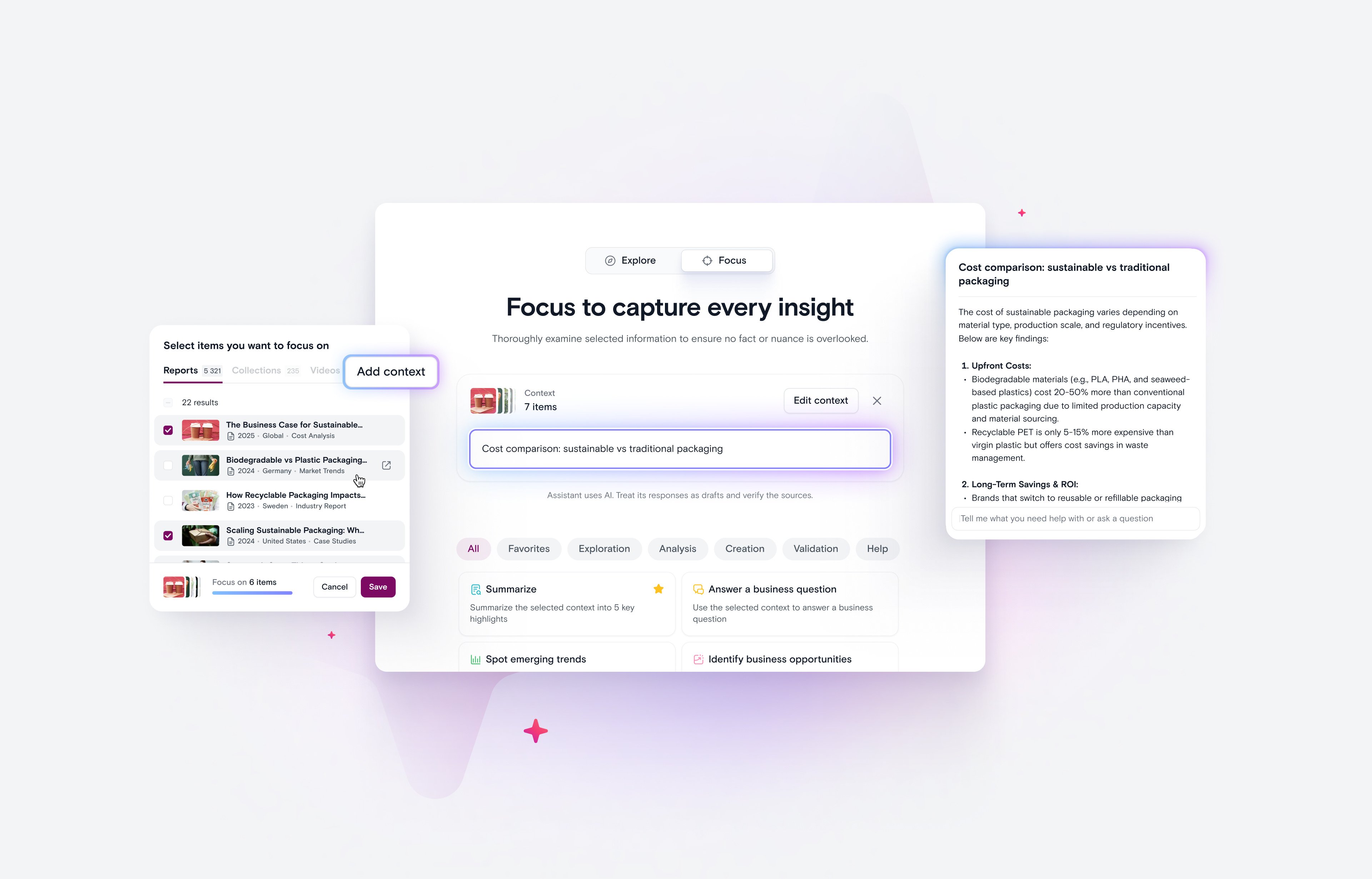3 Takeaways from InsighTalent vs. InsighTech

What do CEOs, architects, pastry chefs, and senators all have in common?
In some way, shape, or form, they can all be used to describe the skills needed for future insights leaders.
Last week, All Things Insights held their digital conference InsighTalent v. InsighTech. The two-day digital event focused on the tensions, challenges, and opportunities that are emerging from the intersection of human expertise and technology in the insights world. I was fortunate enough to be on a panel where we discussed the future skillsets needed for insights leaders. My insightful co-panelists were:
Moderator: Jess Gaedeke, Chief Revenue Officer, GutCheck
Michelle Gansle - VP, Global Strategic Insights, McDonalds
Natasha Hillier - Head of Customer Insight, HSBC
Rama Mallika - Head of Market Research, VoC & Competitive Intelligence, PAYPAL
Doug Healy - Senior Director, Consumer Insights, PEPSI
In this article, I’ll be sharing 3 takeaways from the panel.
Takeaway #1: Bring the voice of the customer into the boardroom.
In recent years, the role of insights (and thus insights leaders) has evolved. No longer just the voice of the consumer, insights leaders are facing both a challenge and an opportunity: to expand their business influence.
To do this, insights leaders should continue to act as business partners, offering guidance and helping to make decisions with imperfect data, but also work to deepen connections with stakeholders across the organization, beyond the usual suspects like marketing and leadership.
Rama Mallika, Head of Market Research, VoC & Competitive Intelligence at PayPal, likened this to acting as a senator, a representative that speaks on behalf of consumers, elevating their voices all the way into the boardroom.
Takeaway #2: Tech isn’t the point...
But it’s absolutely necessary. The world we live in (and by extension, the world we work in), is becoming increasingly tech-forward. This means that the expectations regarding the quality of tech are shifting, especially for younger cohorts who are joining the workforce with unprecedented techfluency.
While concerns about tech making human skill irrelevant are understandable, the reality is that the right tech actually enhances human expertise. Natasha Hillier, former Head of Customer Insight at HSBC explained it elegantly:
– Just because you have a KitchenAid, it doesn’t make you a pastry chef.
Instead technology can support us humans to nurture and further unlock our unique expertise, by automating repetitive tasks and removing process-related obstacles. A facilitator, rather than a replacement.
And as more companies embrace hybrid or even fully remote set-ups, workplace technology effectively becomes the workplace. In order to attract and retain the best talent, insights leaders will need to be tech-forward.
Takeaway #3: Insights leaders are uniquely positioned to champion diversity.
While most companies have moved Diversity Equity Inclusion and Belonging (DEIB) to the top of the agenda, it’s a complex priority to execute.
Insights leaders are uniquely poised to make concrete progress in this area because they can not only help to build more diverse teams within the organization, they can also champion a wider variety of consumer voices.
Michelle Gansle, VP Global Strategic Insights at McDonalds, highlighted this, explaining that insights leaders can contribute to DEIB by revisiting recruitment, how research is conducted, and how results are reported.
Sometimes this means taking more time or resources to complete projects, but as Doug Healy, Senior Director of Consumer Insights at PEPSI added: In order to be the voice of the consumer, your sample needs to be representative.
On a broader level, insights leaders should think about helping their organizations achieve what they need to do in the future; not what they’ve already done in the past.
Conclusion: It’s all about the CEO mindset
Throughout the panel, it became clear that future insights leaders need to adopt the cross-functional, holistic mindset of a CEO in order to maximize the impact of consumer insights in the organization.
By gaining a deeper understanding of organizational stakeholders, championing DEIB, and clearly communicating the impact of insights on the bottom line, insights leaders are well-positioned to act as a source of competitive advantage for businesses.
As Jess Gaedecke, panel moderator and CRO at GutCheck highlights, it’s just a matter of owning it. The insights leaders of today might just be the CEOs of tomorrow.
Watch the full-length discussion
Related Content

To Maximize the Value of Your Research, Start with Knowledge Management
Sarah Wiggins Mar 27, 2025

Stravito Enhances GenAI Assistant to Accelerate Time-to-Insight
Charlotte Hilton Mar 20, 2025
